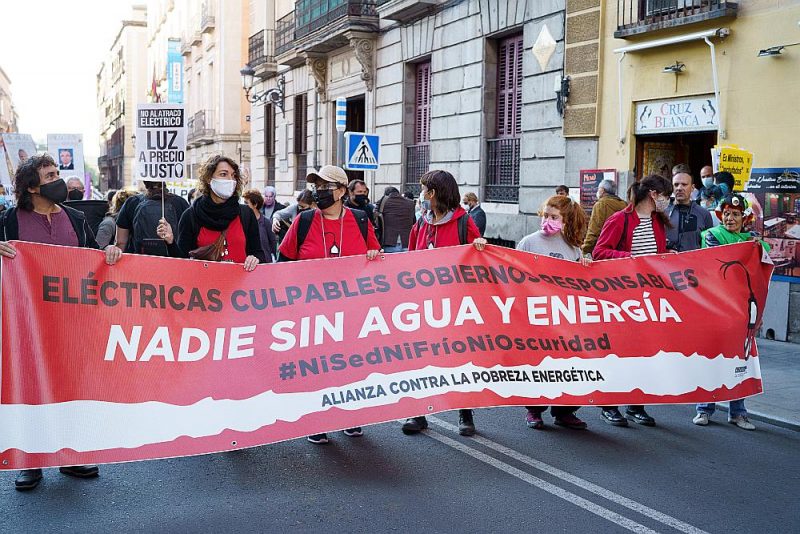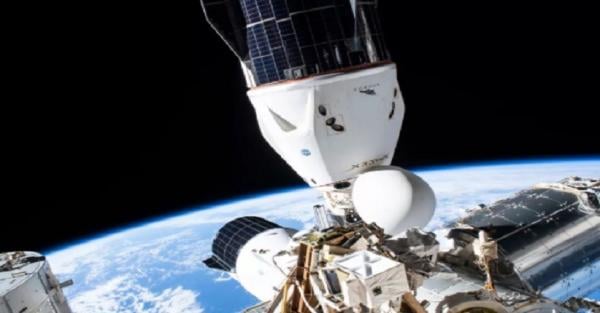
The people of Madrid are protesting against the sharp rise in electricity prices.
Photo: Atilano Garcia/ZUMAPRESS/SCANPIX
Rūdolfs Bruss, “Latvijas Avīze”, JSC “Latvijas Mediji”
In Europe, energy prices, especially natural gas, have risen sharply recently, and there are fears that there may be a lack of energy in the event of a cold winter. Despite the unpleasant situation, there is no consensus in Europe on how to deal with this energy crisis.
–
The news
Covid-19 distribution map: There are seven counties in Latvia where no new patients have been diagnosed
21 hours
–
The news
“Lokdauns will end in the current version. ” MP Stein on the upcoming after November 15
1 day
–
The news
“Unable to to find anything better, what to do, how to terrorize pensioners? ” Customs requires a prescription for an over-the-counter drug
19 hours
–
Countries such as France and Spain are calling for serious reforms in the European energy market. Others, including Germany, see high gas prices as a temporary phenomenon caused by the turmoil caused by the pandemic. The common denominator of the two camps could not be reached at the meeting of the European Union energy ministers in Luxembourg at the end of October.
Poland calls for an investigation into Gazprom’s activities
There is no single cause for Europe’s energy crisis. Much attention is currently being paid to Russia, which provides about 40% of the EU’s natural gas imports. In the early stages of the pandemic, gas imports from Russia to Europe declined due to falling demand. Demand has now resumed, but there has been no supply, the BBC reports.
Although the Russian state-controlled gas company Gazprom has fulfilled its obligations under long-term gas supply contracts, additional gas supplies have been negligible.
The EU has called for an investigation into Gazprom. Poland has demanded that the European Commission launch an investigation against Gazprom for manipulation and abuse of a dominant position in the energy market, Politico reports. However, the Polish request does not oblige the EC to open such an investigation.
Putin awaits Nord Stream 2 certification
Rising gas prices have also allowed Russia to exert political pressure. On October 21, Russian President Vladimir Putin announced that Europe would receive additional gas as soon as Germany approved the Nord Stream 2 gas pipeline in the Baltic Sea. “If the German regulator approves the pipeline, 17.5 billion cubic meters of gas will be delivered the next day,” Putin said. According to him, the figure is about 10% of the gas supplied to Europe and Turkey in 2020, according to The Financial Times.
Putin admits, in essence, that Russia has extra gas to supply to Europe, but it does not. The International Energy Agency has estimated that Russia has the potential to supply Europe with about 15% more gas.
“Either Russia is playing games with Nord Stream 2 or they don’t have gas. In any case, they cannot be relied on, ”said Henning Gloistein, an analyst at Eurasia Group, an analyst at The Financial Times.
The German Ministry of Economics concluded last week that Nord Stream 2 does not pose a threat to German or European energy security, which brings the pipeline certification even closer. Putin, meanwhile, announced last week that Gazprom would start supplying additional gas to the company’s gas storage facilities in Germany and Austria. This immediately led to a significant fall in gas prices in Europe.
Will there be a return to long-term contracts?
Despite Russia’s policy, there are other reasons for the European energy crisis. Following the decline in global energy demand at the beginning of the pandemic, there is a global economic recovery that has allowed energy prices to rise. Over the past decade, Europe has moved away from long-term gas supply contracts linked to oil prices, choosing to buy gas instead when it is needed.
However, there is currently strong demand on the stock exchanges, which has contributed to the rise in gas prices. 2020/2021 Europe experienced a cold winter in 2006, which reduced gas supplies. High gas prices in the spring and summer encouraged the postponement of gas purchases until prices fall. However, such a moment did not come.
Over the last ten years, Europe has built an infrastructure for liquefied gas imports that allows for diversification of supply. LPG accounts for around 20% of Europe’s gas imports, but Europe is currently struggling to compete with Asia for gas supplies. Gas consumption in Asia has increased by 50% in the last 10 years, and in China by as much as three times. Now liquefied gas ships are moving from America and the Middle East to Asia. Most gas is supplied to Asia on the basis of long-term contracts, which gives the market more stability, according to The Economist.
“Every year, China connects 15 million homes to gas in coastal cities. This is comparable to the combined annual demand of the Netherlands and Belgium. When China stays cold, gas prices rise in Britain and Germany, ”explained analyst Gloistein. Due to these factors, gas storage in Europe is around 75% full. However, Russian gas storage facilities are also less than usual.
Energy prices have also been affected by EU policies to combat climate change.
The transition to renewable energy sources, including wind and solar energy, has so far prevented Europe from breaking its dependence on gas. In addition, the goal of moving to green energy in Europe has discouraged investors from investing in fossil fuel supplies once they become obsolete after 30 years, according to The Financial Times.
Renewable energy resources have not delivered the expected amount of energy this year. The abandonment of coal and the lack of wind energy have only strengthened the role of gas in the European energy market.
Is nuclear energy green?
Rising energy prices in Europe have fueled the debate on nuclear energy, which supplies around 26% of the EU’s electricity, and in France even more than 70%. Ten EU Member States, led by France and Poland, have proposed nuclear energy as a solution to the energy crisis and the fight against climate change.
These 10 Member States have called on the European Commission to include nuclear energy in the EU’s green energy mix, allowing governments and investors to determine which energy projects comply with the Paris Climate Agreement. This would reduce the cost of nuclear energy.
Other EU Member States, including Germany, oppose these efforts. Member States are still fighting hard over whether nuclear energy can be considered a “green” or “dirty” energy source. The position on the future of nuclear energy differs sharply between European countries.
In December this year, Germany will close three of the remaining six nuclear reactors. The remaining three actions will end next year. Meanwhile, several other countries, including France, are talking about building new nuclear reactors. As Europe moves towards a green economy and abandons the use of fossil fuels, the battle for the place and role of nuclear energy will certainly continue.
Themes
–


